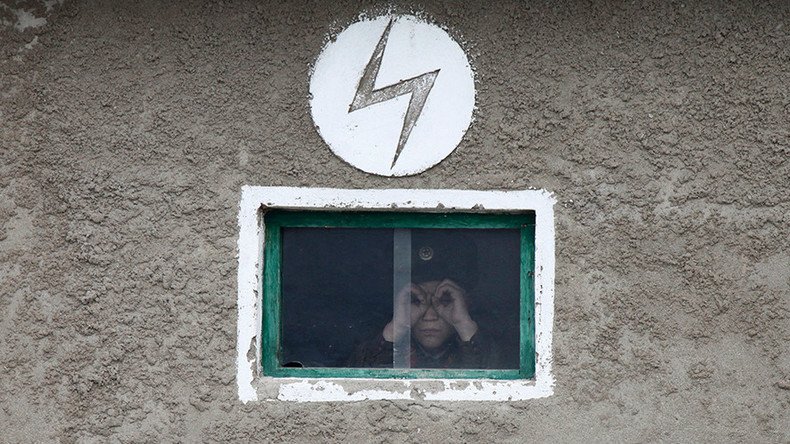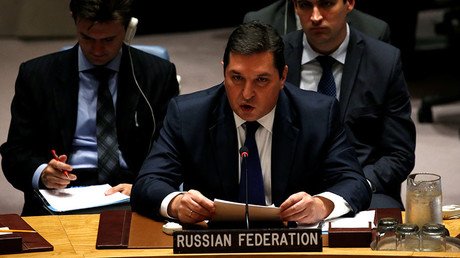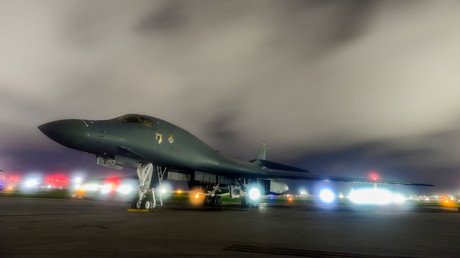Germany supports Russian-Chinese ‘double freeze’ plan for North Korea crisis – FM Gabriel

Berlin supports the joint Russian-Chinese initiative for a “double freeze” to resolve the Korean crisis, German Foreign Minister Sigmar Gabriel said. The plan involves freezing missile launches in North Korea and South Korea’s drills with the US.
Germany “understands and endorses the ‘double freeze’ initiative, and is willing to continue to work with Beijing to promote a peaceful settlement of the DPRK [North Korea] nuclear issue,” the top German diplomat said in a telephone conversation with Chinese Foreign Minister Wang Yi on Wednesday.
“Germany appreciates the important role China plays in tackling the nuclear issue on the Korean Peninsula,” Gabriel added, as cited by China’s Foreign Ministry.
Chinese Foreign Minister Wang said that thanks to efforts from all sides, tensions on the Korean Peninsula were showing signs of easing, but that the "August crisis" is still not over.
China, North Korea's main ally and trading partner, insists on a peaceful solution to the Korean Peninsula nuclear issue, and is willing to see Germany play an active role in the settlement of the crisis, Wang noted.
The Russian-Chinese initiative of “double freezing,” put forward by the Russian and Chinese foreign ministers on July 4, would cease any missile launches and any nuclear tests in Pyongyang, as well as large-scale military exercises by Washington and Seoul.
“Russia together with China developed a very smart plan which proposes ‘double freezing’: [North Korean leader] Kim Jong-un should freeze nuclear tests and stop launching any types of ballistic missiles, while US and South Korea should freeze large-scale drills which are used as a pretext for the North’s tests,” Russian Foreign Minister Sergey Lavrov said last week.
Russia and China have a “range of proposals” aimed at preventing what could become “one of the deepest conflicts” and a “crisis with a big number of casualties,” he noted.
Russia has called for conditions to be laid out to bring the North Korean leadership to the negotiating table for the resumption of the Six-Party talks.
German Chancellor Angela Merkel also said that there was no military solution to the North Korean issue, adding that “an escalation of the rhetoric is the wrong answer.”
READ MORE: Trump: Military solutions ‘locked & loaded’ against North Korea
“I don't see a military solution to this conflict,” Merkel told reporters in Berlin on Friday.
“Germany will be intensively involved in any non-military solutions,” she said. “But an escalation of the rhetoric is the wrong answer.”
Earlier this month, the UN Security Council unanimously agreed to impose more restrictive measures on Pyongyang, banning exports of coal, iron, lead and seafood. The move came in response to North Korea’s latest missile launches in July, which it, as well as South Korea and the US, claimed were intercontinental ballistic missile (ICBM) tests.
Following the move China has announced a full ban on imports of coal, iron, and seafood, among other goods from North Korea as of August 15, thus cutting key export revenues for Pyongyang.
READ MORE: Pyongyang’s main economic lifeline falls as China bans key imports from N. Korea
In early August, US President Donald Trump signed into law new sanctions on Iran, Russia, and North Korea, passed by the US Congress.
Marine Corps Gen. Joseph Dunford, chairman of the Joint Chiefs of Staff, made clear that Washington is ready “to use the full range of military capabilities to defend our allies and the US homeland,” according to US military spokesman Capt. Darryn James, as cited by AP.
Dunford said that he will discuss military options if the “diplomatic and economic pressurization campaign” fails.
“We’re all looking to get out of this situation without a war,” Dunford said.
South Korean President Moon Jae-in, who met with Dunford during his visit, separately called for a peaceful solution on Monday.
“There must not be another war on the Korean Peninsula,” he said, according to his office.
Pyongyang has meanwhile continued its harsh rhetoric against Seoul and Washington, accusing the US of mobilizing a large number of troops and weapons for the annual military drills set to take place with South Korea later this month.














